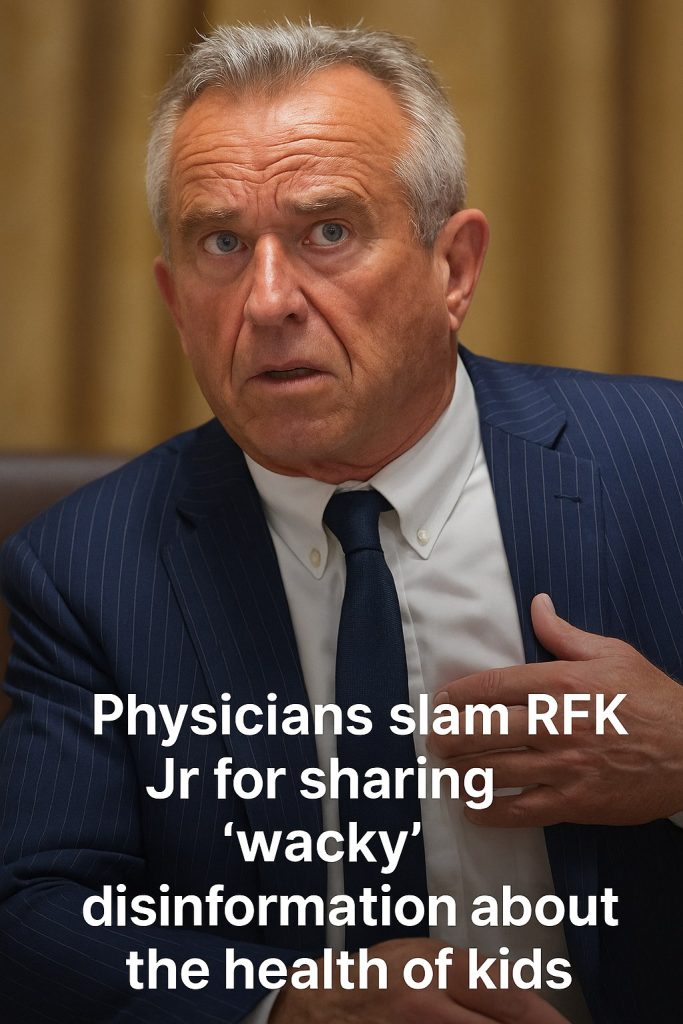US Health Secretary Robert F. Kennedy Jr. has come under intense criticism from the medical community after asserting that he can identify children with “mitochondrial issues” simply by observing their appearance. His claims have sparked widespread backlash from physicians and experts who emphasize that such diagnoses require complex testing and cannot be made through visual assessment alone.
During a recent public appearance, Kennedy suggested that he could discern mitochondrial dysfunction — a serious and often debilitating condition that affects cellular energy production — just by looking at children. This statement quickly drew sharp rebukes from health professionals specializing in mitochondrial diseases, genetics, and pediatric care.
Mitochondrial disorders are a group of conditions caused by malfunctioning mitochondria, the “powerhouses” of cells responsible for generating energy. Symptoms can be highly variable and range from muscle weakness, neurological issues, to organ failure. Diagnosing these disorders often involves detailed biochemical tests, genetic sequencing, and clinical evaluations over time rather than visual inspection alone.
Leading physicians have labeled Kennedy’s comments as misleading and potentially harmful. Several experts issued statements underscoring the complexities involved in mitochondrial diagnosis. They warned that oversimplifying such identification could discourage families from seeking proper medical guidance and promote misinformation.
One pediatric neurologist explained, “Mitochondrial diseases are incredibly complex. It’s not possible to simply look at a child and make a definitive diagnosis. These disorders require extensive multidisciplinary assessments.”
The controversy comes at a time when Kennedy, who has held a prominent role in US health policy, has repeatedly drawn attention for his outspoken and often contentious views on health-related matters. Critics argue that such unfounded medical assertions from a top health official risk undermining public trust in science-based healthcare and may fuel confusion amid ongoing efforts to raise awareness about rare diseases.
In response to the criticism, Kennedy has defended his remarks, stating he was speaking from his personal experience and observations. However, medical professionals stress that anecdotal opinions cannot replace scientific rigor, especially in the context of complex diseases that require specialized expertise.
This incident has reignited wider discussions about the responsibility of public officials to communicate health information accurately. Experts stress the importance of clear, evidence-based messaging, particularly when addressing vulnerable populations such as children with rare illnesses and their families.
As the debate continues, advocacy groups focused on mitochondrial disease emphasize the need for increased funding in research, better diagnostic tools, and education for both clinicians and the public. They caution that misinformation could delay critical treatments or misdirect concerned families, compounding the challenges faced by affected children.
Ultimately, the medical consensus remains clear: diagnosing mitochondrial disorders demands comprehensive clinical and laboratory evaluation, not mere visual appraisal. The controversy surrounding Robert F. Kennedy Jr.’s comments serves as a potent reminder of the high stakes involved when health information intersects with public leadership.
With the healthcare community united in urging caution and accuracy, it is hoped that future public dialogue will center on scientific evidence, supporting ongoing efforts to improve outcomes for children living with mitochondrial diseases.



